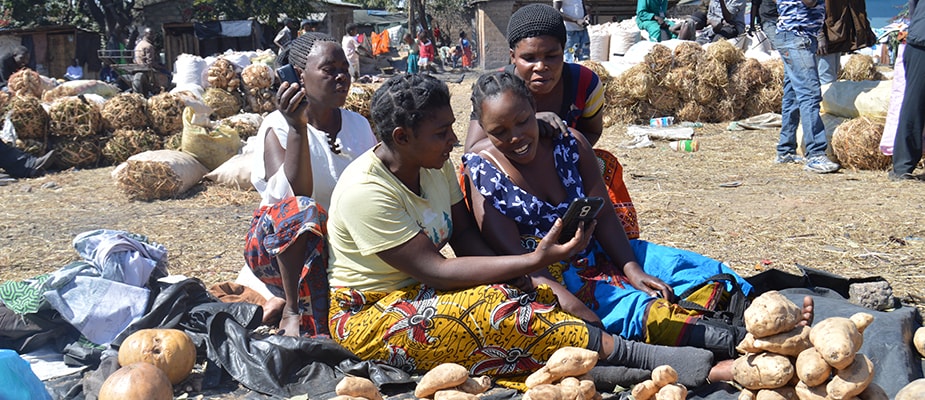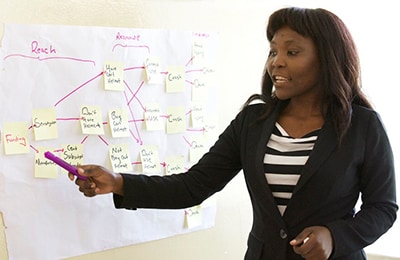Zambia at the Forefront on Data for Health
April 30, 2019

With mobile phone use common globally, mobile phone surveys offer a rapid, cost-effective tool to collect health data. Photo: Zambia Ministry of Health
Nearly 60% of low- and middle-income countries currently do not report basic health data, limiting the ability of policymakers to make informed decisions to improve the public’s health.
To better equip governments with the tools and systems to collect and use data, Bloomberg Philanthropies, CDC, and global partners launched Data for Health (D4H) initiative in 20 countries. Among these, Zambia has been at the forefront, providing a model of effective and country-driven implementation, demonstrating best practices, and sharing lessons learned.
USING MOBILE PHONES TO COLLECT DATA
With mobile phones increasingly common worldwide, D4H is exploring the potential for mobile phones to provide timely and accurate data. D4H teamed up with CDC to assess the feasibility of using mobile phone technology to track noncommunicable diseases (NCDs) and their related risk factors by gathering nationally representative information on topics like tobacco use, alcohol use, diet, hypertension, and diabetes.
As the first country to conduct the NCD Mobile Phone Survey, Zambia led the way in successfully engaging national stakeholders, establishing technical infrastructure, building local capacity, adapting and administering the survey, and analyzing results. The Zambian government is now preparing to share the survey findings publicly and use the data to enhance NCD prevention and response strategies. Following Zambia’s lead, the Philippines and Morocco also completed the survey. Meanwhile Malawi, Sri Lanka, and several other low- and middle-income countries are currently implementing the survey, applying insights from Zambia’s pioneering efforts.
TURNING DATA INTO ACTION

Chamba Mulubwa explains the decision tree for a policy brief. Photo: Michael Washington
Without analysis and good communication, data are only numbers. Through trainings and mentorship, the Data Impact Program, another arm of D4H, is building the skills of Ministry of Health staff to translate data into policy briefs, communications products, and public health bulletins to inform policy and program development.
Zambia has begun to apply the recommendations stemming from analysis of national data. So far, results include policy changes on cervical cancer screenings and pilot programs for tuberculosis testing among health care workers and in maximum security prisons. These recommendations, and results from other D4H activities in Zambia, are shared in The Health Press, Zambia’s public health bulletin, which was also developed with support from the D4H initiative.
Zambia is sharing these successful strategies regionally; in 2018, Zambia sent two trainers to Tanzania to facilitate a Data to Policy session for the Southern Africa region. This facilitation across countries is a promising way for the Data to Policy training program to build regional capacity.
A NEW WAY FORWARD
The D4H initiative is empowering Zambia and other countries to strengthen health surveillance and improve data use. From the initial data collection at the community level to decision-making at the Ministry of Health, CDC’s partnership with D4H is equipping countries with the technical capacity to collect, analyze, and translate data for meaningful health policy change.
“Very few projects address the real issues,” explained Jabbin Mulwanda, Permanent Secretary for the Zambia Ministry of Health, “Lessons are learned, but the reports end up on the shelf and don’t change policy. I am excited about this initiative because available evidence will be used to inform decision makers and make meaningful change.”